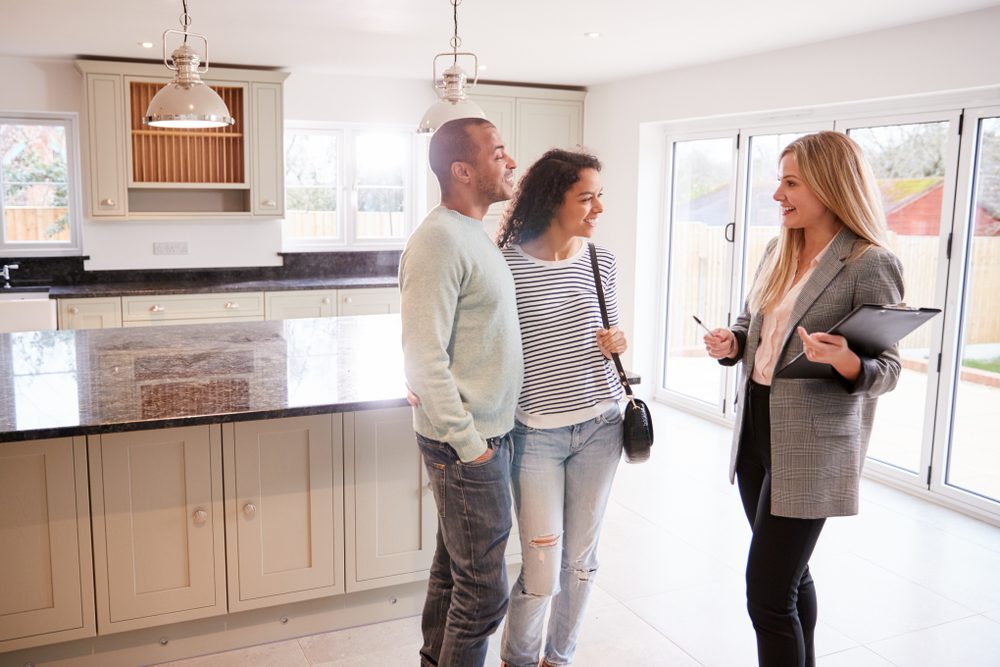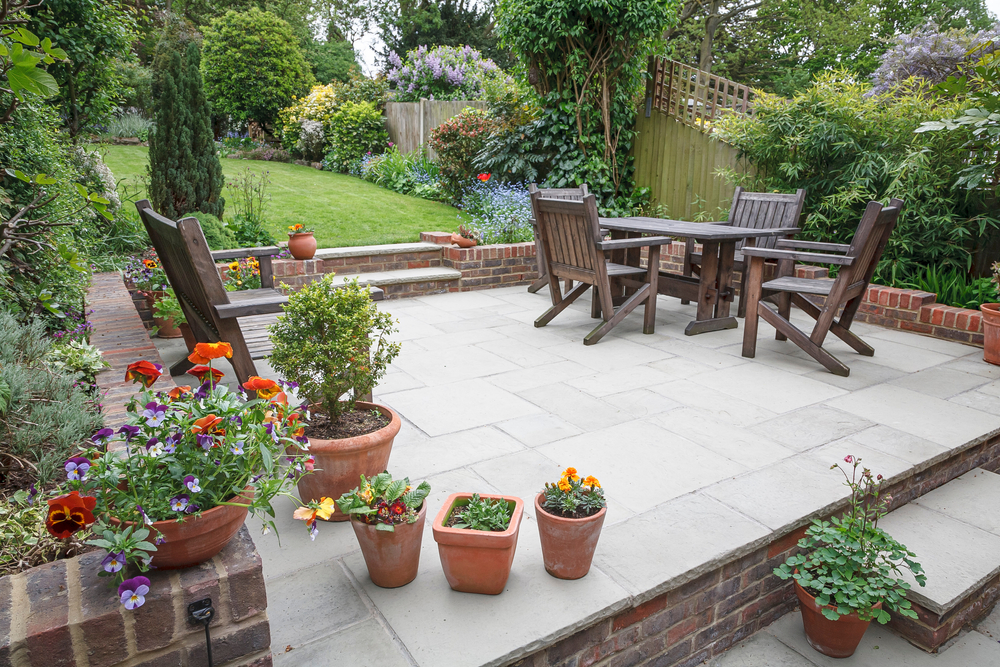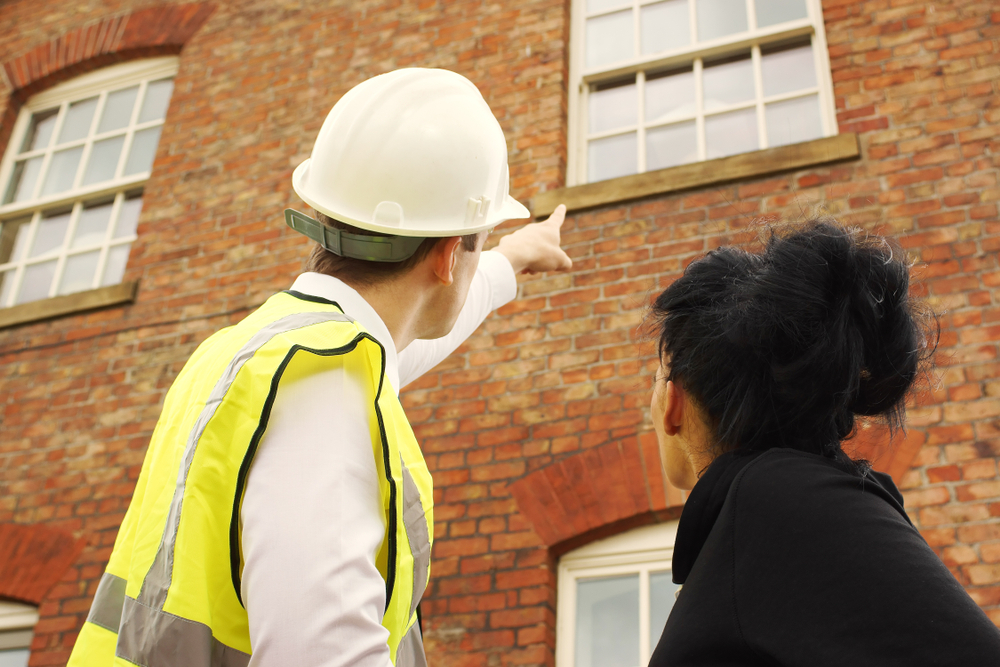House viewing checklist: What to look out for

Searching for your dream house can be challenging, and there’s much to consider. After all, it’s a big decision that shouldn’t be taken lightly, particularly if you’re buying your first home.
You have to think about the property as a whole, from the local area it’s situated in to each nook and cranny in each and every room. The last thing you want is to make a purchase only to find out later that significant repairs need to be made or you don’t like the area.
This process can be quite daunting for many people, especially if you don’t know what to look for. Plus, factor in viewings for numerous properties and it’s easy to find yourself overwhelmed with the whole experience.
Therefore, this article will provide you with a free house viewing checklist so you know all the important information to consider during your viewing, allowing you to make your decision-making process easier. We’ve also listed eight tips to ensure you make a good impression and that they go as smoothly as possible.
Property viewing checklist
General questions
How long has the property been on the market?Why is the owner selling?How long have they lived there?How high are the household bills, such as energy, water, home and contents insurance, broadband, council tax, etc.?What is the property’s EPC (Energy Performance Certificate) rating?Where is the boiler placed? What is its service history?Is there a working alarm system installed?Is there a garage to park your car in? Can you park in the driveway? Or will you have to park on the road?Are there possibilities to extend or renovate to add value, such as with a loft conversion?Are there local plans in place which could affect the property?
Inside each room
Are the carpets or flooring in good condition?Do all the light switches work?How many power sockets are in the room, and where are they placed?Are there cracks in the walls and/or ceilings?Are there signs of damp, mould, or mildew?Is the decor in good condition? Is the decor in a style you like, or will it need renovation?Are the windows single, double, or triple-glazed?Do the windows and doors open and close easily?Are the window frames in good condition?Do the windows and doors have locks?
Brickwork and roof
Is the brickwork in good condition?Are there any visible cracks?Is there rendered brickwork? Is it in good condition?Are there loose, damaged, or missing roof tiles?Is there a chimney? Is it straight and in good working condition?Are the fascias in good condition?Do the drains and gutters work smoothly, or are they blocked or leaking?
Local area
How busy does it get during rush hour?What shops and amenities are located nearby?Is the location well-connected to other areas via public transport?
A room-specific checklist
Living room
Which direction does the living room face? Will it get enough natural sunlight?Is there a fireplace? Does it work?Are the walls behind the sofas in good condition?How many radiators are there in the room, and where are they placed?Are there wall mountings on the walls that need filling in?
Bedrooms
Is the bedroom size big enough?What sized bed would realistically fit in the room?How much storage space is there? Is there a built-in wardrobe? If not, will there be space for a cupboard?Are the sellers leaving behind the curtains and fittings?Is the room well-ventilated?
Kitchen
Are the sellers leaving the fixtures and fittings behind?Are the units, worktops, and fittings in good condition?Does the kitchen sink drain well?Are there signs of damp, mould, or mildew underneath the sink?Are the kitchen taps working well?How strong is the water pressure from the taps?How long does it take for hot water to come through?Is there enough space for an adequate-sized dining table and chairs?Is there enough space for all your kitchen appliances?
Bathroom
Is the bathroom well-ventilated? Is there just a window or also an extractor fan?Is it a poorly maintained bathroom?Is there a bath or shower, or both?How strong is the water pressure from the shower and taps?How long does it take for hot water to come through them?Does the toilet flush well?Is there silicon sealant throughout the bathroom? Is it watertight?Is there a shaver socket?
Garden

Is there a front and back garden?What direction do they face? Does it get enough sunlight, or is it in the shade the entire day?How much work and maintenance will be required?Are there neighbouring houses that overlook the garden?Is there enough storage space, such as a shed?Will the seller leave things behind, such as garden furniture, pots, plants, etc.?Are there solid boundaries between your garden and your neighbour’s?Are there trees or hedges that overhang into the garden?Are there large trees close to the building which could cause subsidence?
House viewing tips
Now that you have a checklist you can run through whilst viewing the property, there are also some things to keep in mind during your visit.
1. Do a thorough inspection
When scouting out your potential dream home, taking your time during your viewing is important. This is so you can get a feel for the property and determine if it’s right for you.
During house viewings, some estate agents are under time constraints and may give you a quick overview of the property in 10-15 minutes and call it a day. However, it’s up to you to do your due diligence, especially if you consider it your future home. If the estate agent has scheduled you for a specific time block, use as much of it as possible.
Feel free to split off from the estate agent and take a stroll around the property at your own pace. Bring a pen and notepad to make notes and write down questions you want to ask the seller or estate agent.
2. Visit the property more than once
To add to the previous tip, it’s also a good idea to go back for a second viewing – ideally, at a different time of the day. This has three main benefits. First, by seeing the property for a second time, you might be able to spot something that you missed the first time around.
Secondly, by going at a different time, you will get a feel for the property and local area throughout a normal day, just as you would if you lived there. You may find that your perception of the house changes in the evening compared to when you see it in the morning.
Lastly, you’ll be able to ask the estate agent or seller questions that you may have forgotten on the first viewing. These three things may help you make your final decision.
3. Conduct a home survey

If you’re purchasing through a mortgage, the mortgage lender will require a valuation survey to determine whether the home is worth what you’re paying. They don’t require a home survey that looks at the property’s condition. As such, you’ll want to hire the services of a surveyor to conduct a home survey. This will look to see if there are defects or signs of future problems.
4. Use your other senses
Most people only use their eyes when they go to a property viewing. The problem with this is that sellers can cover up problems, such as painting over cracks or putting a rug over damaged flooring. Since you won’t be able to see the damage, you won’t realise it’s there.
To combat this, use all your senses. Mould and damp spots will give off an odour, so it’s important you are aware of smells coming from certain rooms or areas in the home. Also, you can use your hands to feel wallpapers and paint jobs to see if you can feel any irregularities. Also, be mindful of sounds. Does a particular part of the floorboard sound off?
These are all signs of something wrong that may need further surveying. Just remember not to use your sense of taste!
5. Take lots of photographs
Looking for a new home is no small decision, and you’ll likely be viewing tens of houses before you choose one. With so many property viewings, conversations, and things to consider, it can be tough to keep track of all the details.
Therefore, be sure to take as many photographs as you can when viewing a house. Take pictures of things you like, things that may need repairing or improving, potential problem areas, etc., and from different angles.
Of course, be sure to ask for permission beforehand, as some sellers may not want you taking pictures in their homes.
6. Try not to let emotion cloud your judgement
Humans are emotional creatures, and many of our decisions and thoughts are based on emotion. This can be great for certain things, but when it comes to investments and big life-altering choices – like buying a new home – it’s best to try and minimise emotion as much as possible.
Try not to get attached too early since you’ll then view the property through rose-tinted glasses instead of being objective. At the same time, don’t let negative things sway your decisions too much. You may find that you can use those ‘faults’ to your advantage, such as negotiating a better price.
We understand that this is easier said than done. Still, if you’re able to remain objective and rational, you’ll be able to see the property for what it is and act accordingly.
7. Get a second opinion
Try to take someone with you when you go for a viewing. If it’s possible, try to go with an estate agent. As a professional in their field, they have a keen eye for what makes a property good or not and will provide invaluable insight.
However, a friend or family member will also work. A second opinion is always helpful as they can spot things you don’t, and they’ll have an objective perspective on the property.
8. House viewing etiquette
It’s also important to adhere to proper etiquette whilst you’re there. This includes the following:
Be punctual – Show up on time, and if you’re going to be late, give the estate agent or seller a call in advance.Be professional – Of course, you want to show your personality and build rapport with the existing homeowner and estate agent, but you also want to keep it professional – after all, you’re engaging in a business transaction.Offer to remove your shoes – The seller may still be living in the home whilst it’s on the market, and the last thing they want is dirt from people’s shoes muddying their home. Therefore, offer to take your shoes off. Not only is this polite, but it will also leave a good impression.Ask before digging around – It’s also polite to ask before opening cupboards and furniture since the seller may have their personal belongings in there. As such, always ask for permission before opening closed-off areas or furniture.Ask for permission before taking pictures – Some sellers may not want you to take photos of their home. Therefore, always ask for permission before you start snapping.
Summary
Looking for a new home can be stressful, but it doesn’t have to be. If you know what to look out for, you can filter through the fluff and make a well-informed decision based on facts.
You’ll have to have a keen eye to check whether the property and surrounding area live up to your standards. The checklists outlined in this article will help you get all the information you need to find the perfect home for you.







